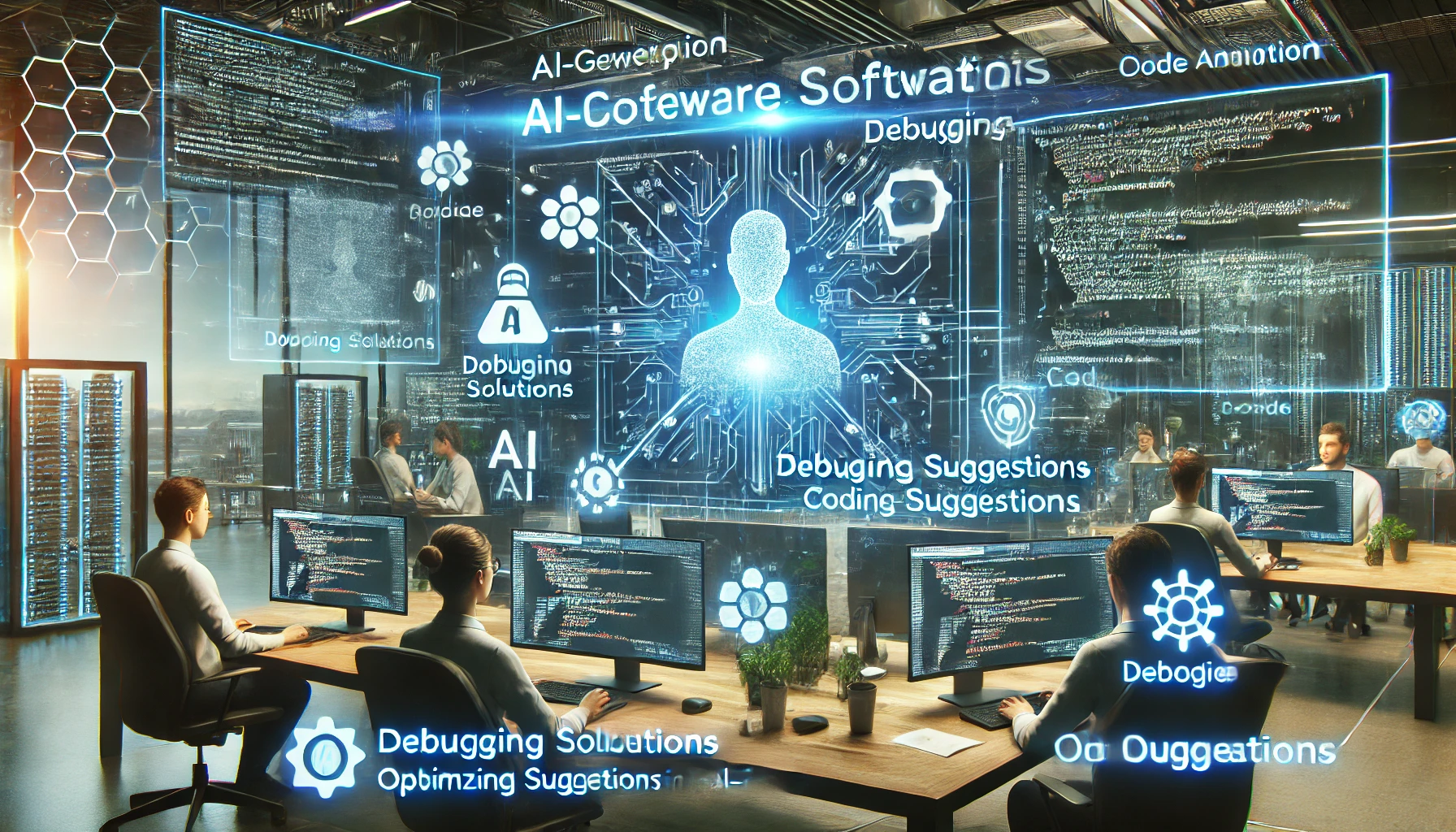Introduction
Artificial Intelligence (AI) is rapidly reshaping industries, and one of the most significant advancements in this space is Generative AI. With its ability to generate high-quality text, images, and even code, generative AI is proving to be a game-changer in software development. It is streamlining workflows, reducing human effort, and enhancing accuracy in coding practices.
In this article, we will explore the growing role of Generative AI in software development, its accuracy, the benefits it offers, potential challenges, and what the future holds for AI-driven coding.
Understanding Generative AI in Software Development
Generative AI refers to AI models capable of creating content, including software code, with minimal human intervention. These models, such as OpenAI’s Codex (which powers GitHub Copilot) and Google’s AlphaCode, can understand natural language prompts and generate functional code in various programming languages.
By leveraging vast datasets of existing code, these AI models can:
- Automate repetitive coding tasks
- Enhance developer productivity
- Reduce errors and bugs
- Speed up software development lifecycles
The Accuracy of Generative AI in Coding
Accuracy in software development is crucial, as even minor errors can lead to significant vulnerabilities and system failures. Generative AI has made remarkable progress in improving the precision of code generation. However, its accuracy is influenced by several factors:
1. Training Data Quality
The accuracy of AI-generated code depends on the quality and diversity of the training data. AI models trained on well-structured and error-free datasets produce more reliable code snippets.
2. Contextual Understanding
AI tools rely on user prompts to generate code. While they can generate functional code, they may sometimes misinterpret the intended logic. Providing clear and detailed prompts improves the accuracy of results.
3. Error Detection and Correction
Many generative AI tools come with built-in debugging and code improvement suggestions. AI-powered error detection mechanisms enhance code quality by identifying and fixing potential mistakes in real time.
4. Human Supervision
Despite its capabilities, AI-generated code requires human oversight to ensure correctness, efficiency, and adherence to best practices. Developers must review, test, and validate AI-generated code before deploying it in production.
Benefits of Generative AI in Software Development
1. Faster Development Cycles
Generative AI significantly reduces the time needed to write and test code. Developers can generate boilerplate code, repetitive functions, and even complex algorithms with just a few prompts.
2. Enhanced Code Quality
AI tools analyze vast amounts of existing code to generate optimal solutions, reducing redundant or inefficient coding practices.
3. Lower Barrier to Entry
Beginner programmers can use AI-generated suggestions to learn coding best practices and enhance their development skills.
4. Automated Documentation
AI can automatically generate documentation for codebases, making it easier for teams to understand and maintain projects.
5. Improved Collaboration
With AI-assisted coding, teams can collaborate more efficiently by leveraging AI-powered suggestions, leading to smoother development workflows.
Challenges and Limitations
1. Lack of Creativity in Complex Problem Solving
While AI excels at generating structured code, it struggles with creative problem-solving and may require human intervention for novel solutions.
2. Security Concerns
AI-generated code might introduce security vulnerabilities if not properly reviewed. Hackers could also exploit AI models to generate malicious code.
3. Dependency on Training Data
If AI models are trained on outdated or biased datasets, they may produce suboptimal code that does not align with modern development standards.
4. Legal and Ethical Issues
The use of AI-generated code raises questions about intellectual property rights and code ownership, which are yet to be fully addressed by legal frameworks.
The Future of Generative AI in Software Development
1. Improved AI Accuracy and Reliability
Future AI models will continue to evolve, leveraging more diverse datasets and advanced learning techniques to enhance accuracy and reduce errors.
2. AI-Assisted Pair Programming
Generative AI will likely become an essential tool for pair programming, where developers work alongside AI to optimize and debug code collaboratively.
3. Seamless Integration with Development Environments
AI-powered tools will integrate more seamlessly with IDEs (Integrated Development Environments), making AI-driven code generation an effortless part of the software development process.
4. Greater Emphasis on AI Ethics and Governance
Stronger regulations and ethical considerations will be implemented to ensure responsible AI development and prevent misuse.
Conclusion
Generative AI is revolutionizing software development by accelerating coding processes, enhancing accuracy, and reducing human workload. While challenges remain, the future of AI-powered coding is promising, with continuous advancements leading to more reliable and intelligent development tools.
As AI continues to improve, developers must embrace it as a powerful assistant rather than a replacement. By combining human expertise with AI-driven insights, the software industry can unlock new possibilities, drive innovation, and shape the future of technology.










+ There are no comments
Add yours